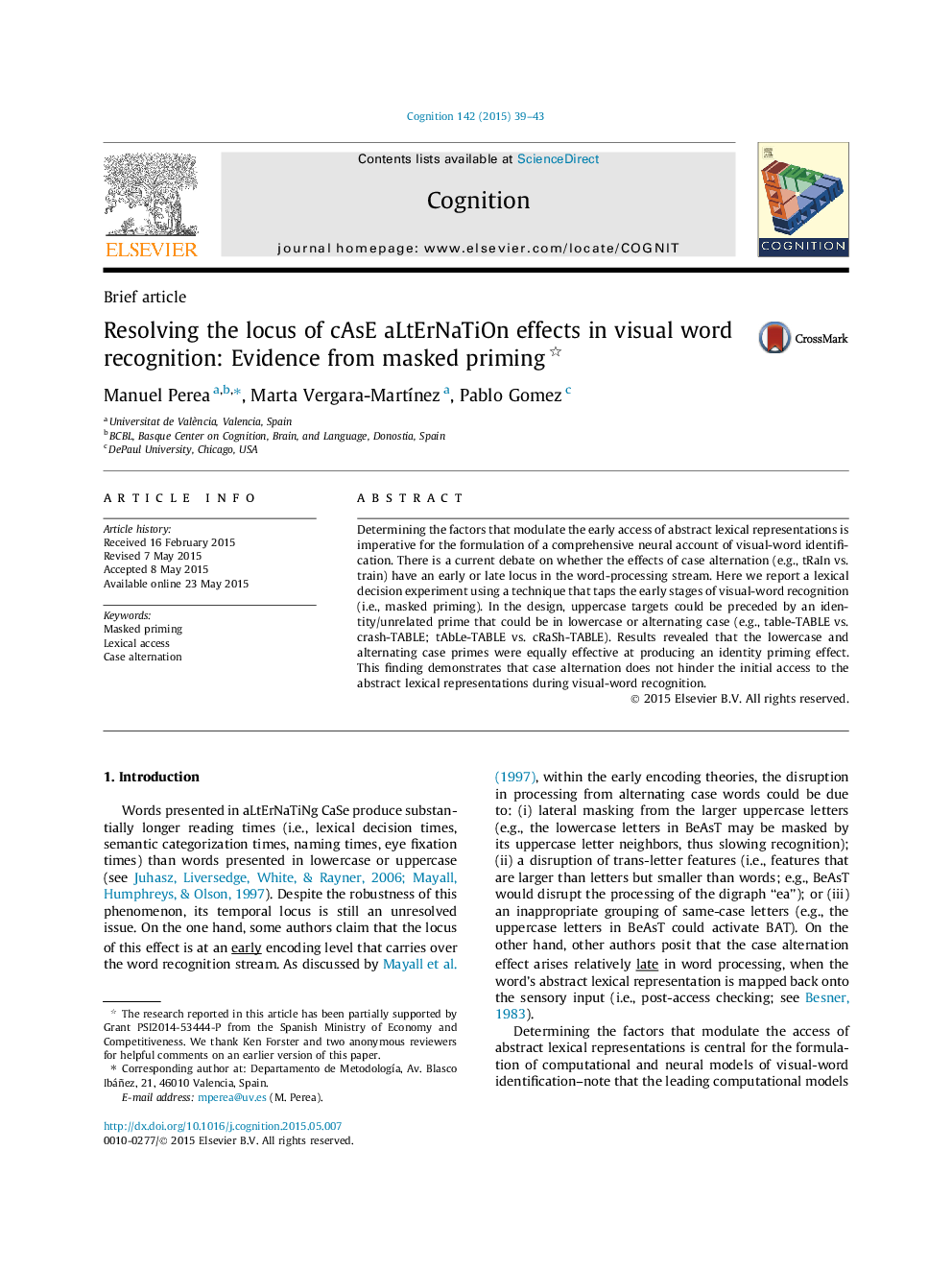| Article ID | Journal | Published Year | Pages | File Type |
|---|---|---|---|---|
| 7286884 | Cognition | 2015 | 5 Pages |
Abstract
Determining the factors that modulate the early access of abstract lexical representations is imperative for the formulation of a comprehensive neural account of visual-word identification. There is a current debate on whether the effects of case alternation (e.g., tRaIn vs. train) have an early or late locus in the word-processing stream. Here we report a lexical decision experiment using a technique that taps the early stages of visual-word recognition (i.e., masked priming). In the design, uppercase targets could be preceded by an identity/unrelated prime that could be in lowercase or alternating case (e.g., table-TABLE vs. crash-TABLE; tAbLe-TABLE vs. cRaSh-TABLE). Results revealed that the lowercase and alternating case primes were equally effective at producing an identity priming effect. This finding demonstrates that case alternation does not hinder the initial access to the abstract lexical representations during visual-word recognition.
Related Topics
Life Sciences
Neuroscience
Cognitive Neuroscience
Authors
Manuel Perea, Marta Vergara-MartÃnez, Pablo Gomez,
